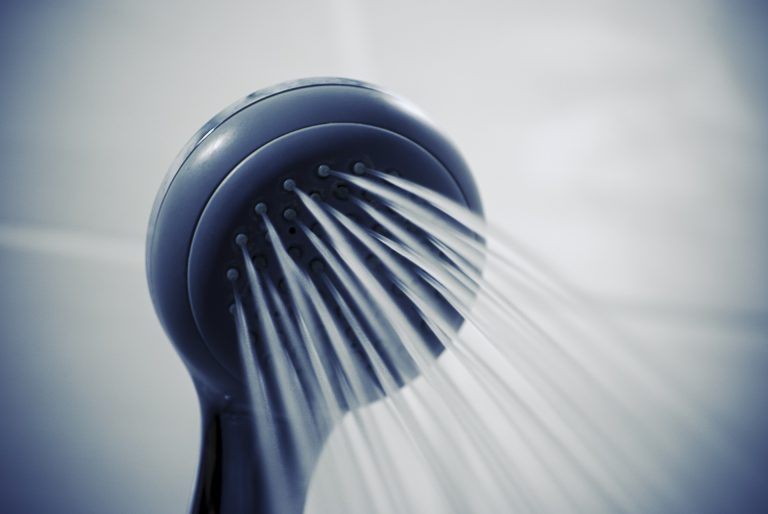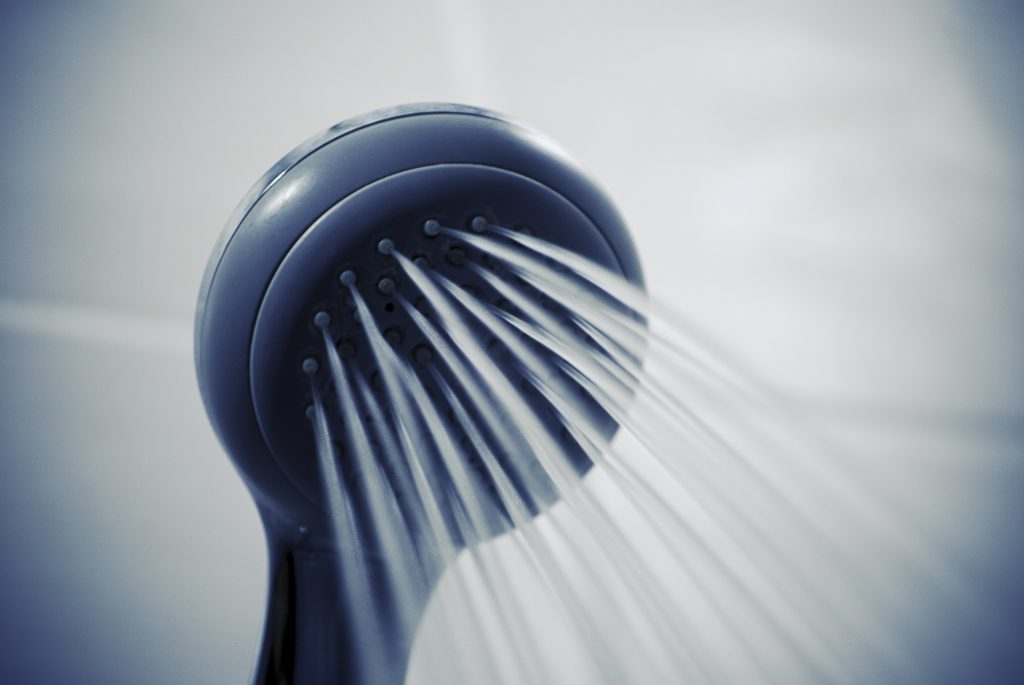
If you’re at all interested in boondocking (i.e. RV camping without hookups), you’ve probably wondered how others make it work. The truth is, there are lots of tricks that make boondocking possible, and many of these are things you discover by simply jumping in and figuring out what works for you.
One of the main things you’ll need to figure out is how to make your water supplies and your waste tank space last throughout your boondocking trips. Fortunately, there are a number of ways to save water, and those who have gone before you into the world of boondocking are generally more than happy to share.
In this article, we will discuss our favorite water-saving tips so you can boondock for longer stretches of time and enjoy all nature has to offer.

How to Save Water While RV Camping: Bathing
The number one water hog in your RV is the shower. In fact, factory-installed RV shower heads are incredibly inefficient, meaning you don’t get much bang for your buck when using your precious water supplies on showering.
Here are our tips for staying clean while still putting water preservation first during your dry camping trips:
Sponge Baths — First and foremost, we recommend dropping your everyday showering habit. Instead, use a washcloth (or a product such as Venture Wipes) to wipe yourself down each day, and limit yourself to one full shower every few days.
Replace the Shower Head — When you do shower, it’s important that you use as little water as possible. Replacing your shower head with an Oxygenics shower head is a great way to do this.
Turn the Water Off — You’ll also want to turn the water off while lathering up, and turn it back on to rinse. This will save a surprising amount of water.
Catch Gray Water — Instead of letting your shower water run down the drain, catch it in a pan placed in the shower. You can then use this water to flush the toilet, saving gray tank space and freshwater supplies.
Replacing Your RV Toilet for Water Conservation
Avoiding flushing your freshwater down the black tank is another great way to stretch your time in the wilderness. You can do this by saving gray water from showers or dishes, and using that to flush.
However, an even better option is to replace your RV toilet with one of the many water-saving toilets out there. The composting toilet is our favorite option for this purpose.
A composting toilet doesn’t use any water at all, and because it doesn’t require a waste water tank, you’ll be left with a black tank that can be turned into an extra gray tank. We love this Nature’s Head composting toilet, and find that it is quite easy to use and doesn’t cause any stink at all.

Ways to Conserve Water in the Kitchen
What about in the kitchen? You will, of course, need some water for cooking and drinking, and washing dishes after each meal is a must. That said, there are ways to cut back on the amount of water you use in the kitchen:
Use Bottled Water — Bring several jugs of water to use for drinking and cooking. This will likely taste better than water from your tank anyway, and will allow you to stretch what’s in your tanks.
Grab Paper Plates — Paper plates and bowls will reduce the number of dishes you need to wash, meaning less water is used at cleanup time.
Wash into a Dishpan — Use a plastic dishpan to wash and rinse dishes. This allows you to run less water during washing sessions, and gives you the opportunity to save gray water for toilet flushing purposes. If you use biodegradable soap, you could even dump the rinse water outside.
Other Simple Ways Save Water
Looking for other simple ways to save water while dry camping? We recommend keeping hand sanitizer and sanitizing wipes on hand, reducing the need to wash your hands.
Making a point of talking to the little ones about water conservation can also be extremely helpful. Lessons on water conservation for kids could include turning the water off while lathering up when washing hands, and turning the water off while brushing teeth.
Using these tips, you should be able to head off into the wilderness and do some serious boondocking. Some families are even able to make their water supplies last a full week! Why not go out and see how long you can last?






